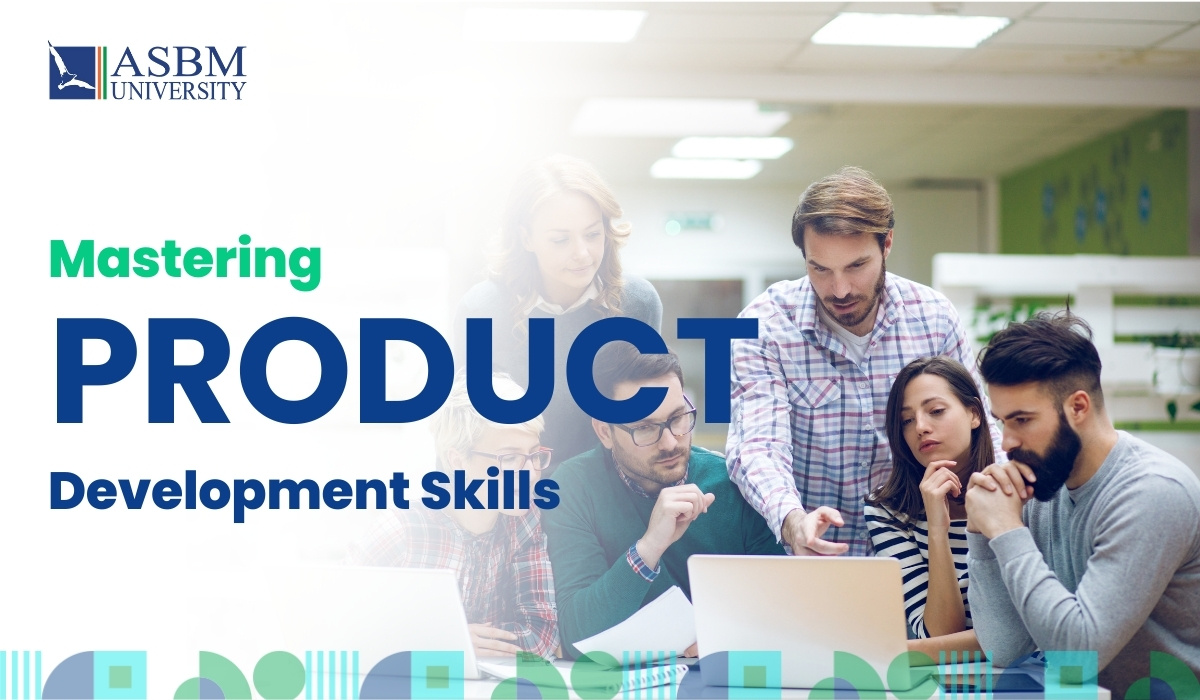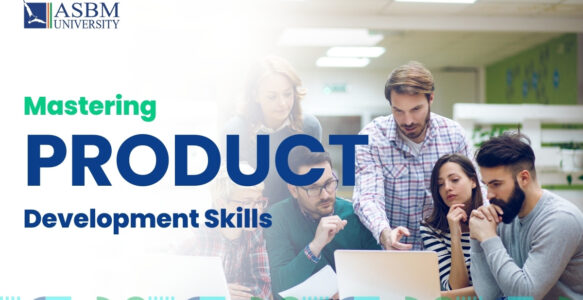Benefits of Mastering Product Development Skills

The concept of a “product” has undergone a remarkable transformation these days. Gone are the days when a product was simply a physical item on a store shelf. Today, the definition of a product has expanded to encompass digital solutions, innovative services, and even experiences that cater to the evolving needs of consumers. This shift has given rise to a thriving ecosystem of product-based startups, especially in India, where entrepreneurial spirit and technological prowess converge to redefine the landscape of modern business.
Understanding the Real Definition of a Product
At its core, a product is any offering, whether tangible or intangible, that provides value to the end-user. This can range from physical goods like consumer electronics or clothing, to digital applications, software platforms, or even subscription-based services. The key distinguishing factor is that a product is designed with a specific purpose in mind – to solve a problem, satisfy a need, or enhance the user’s experience.
In the context of startups, a product is the fundamental building block upon which the entire business model is constructed. It is the embodiment of the founder’s vision, the result of careful research, design, and development. A successful product not only meets the needs of the target market but also sets the stage for sustainable growth, scalability, and long-term profitability.
The Importance of Product in the Start-up Ecosystem
In the dynamic start-up ecosystem, the product holds a crucial position. It is the primary means by which a start-up differentiates itself from the competition and captures the attention of its target audience. A well-crafted, user-centric product can be the deciding factor between a start-up’s success and failure.
Moreover, the importance of product extends beyond the start-up itself. In the broader economy, product-based startups have emerged as key drivers of innovation, job creation, and economic growth. These nimble, agile enterprises are often the first to identify and respond to evolving consumer preferences, disrupting traditional industries and pushing the boundaries of what’s possible.
The Rise of Product-Based Startups in India
India has witnessed a remarkable surge in the number of product-based startups in recent years. According to industry reports, over 90% of Indian startups are now focused on developing innovative products, ranging from mobile applications and e-commerce platforms to cutting-edge technologies in fields like healthcare, fintech, and renewable energy. Additionally, Indian unicorns have collectively raised over $100 billion in funding with a combined valuation of these unicorns exceeds $350 billion.
This shift towards product-centricity can be attributed to a confluence of factors. The rapid adoption of digital technologies, the growing middle-class population with increasing purchasing power, and the availability of a skilled, tech-savvy workforce have all contributed to the flourishing of product-based startups in India. Additionally, the government’s initiatives, such as the “Startup India” program, have provided much-needed support and infrastructure to foster a vibrant entrepreneurial ecosystem.
Some notable examples of successful product-based startups in India include PhonePe, a digital payments and financial services platform; Flipkart, a leading e-commerce marketplace; Ola, a ride-hailing app that has disrupted the traditional taxi industry; and OYO, a hotel booking platform that has transformed the hospitality industry by offering affordable and standardized accommodations. These companies have not only transformed their respective industries but have also become global success stories, showcasing the immense potential of the Indian start-up landscape.
The Benefits of Developing Product Development Skills
As the demand for product-based startups continues to rise, the need for individuals with robust product development skills has become increasingly apparent. Developing these skills can provide a multitude of benefits, both for aspiring entrepreneurs and those seeking employment in the rapidly evolving start-up ecosystem.
- Versatility and Adaptability: Product development skills equip individuals with the ability to understand user needs, ideate solutions, and bring those solutions to life. This versatility allows for seamless transitions across different industries and sectors, making professionals with these skills highly valuable in the job market.
- Entrepreneurial Mindset: The process of product development fosters an entrepreneurial mindset, instilling qualities such as innovation, problem-solving, and a user-centric approach. These attributes are invaluable for those interested in starting their own ventures or contributing to the growth of product-based startups.
- Competitive Advantage: In a job market that increasingly favors specialized skills, individuals with product development expertise often have a competitive edge over their peers. These skills are highly sought after by startups and established companies alike, as they seek to drive innovation and stay ahead of the curve.
- Marketable Skillset: Product development encompasses a diverse range of disciplines, including design, engineering, project management, and data analysis. Mastering these skills not only enhances one’s employability but also opens up a wide array of career opportunities, from product management to user experience (UX) design.
- Continuous Learning and Growth: The product development field is constantly evolving, driven by technological advancements and changing consumer preferences. Professionals who engage in product development work must continuously adapt, learn, and expand their knowledge, ensuring long-term career growth and relevance.
Exploring Product Development Scenarios
To better understand the breadth and versatility of product development, let’s examine two distinct scenarios – one involving a non-digital product and the other focused on a digital product.
Scenario 1: Sustainable Clothing Line
Imagine a start-up that has developed a line of sustainable clothing made from eco-friendly materials. The product development process for this non-digital product would involve various steps, such as:
- Identifying the target market’s preferences and pain points related to sustainable fashion
- Designing the clothing line with a focus on functionality, aesthetics, and environmental impact
- Sourcing and vetting sustainable materials from ethical suppliers
- Establishing efficient manufacturing and supply chain processes to ensure product quality and timely delivery
- Developing a comprehensive marketing strategy to effectively communicate the brand’s values and USP
- Continuously gathering customer feedback and iterating on the product line to meet evolving consumer needs
Scenario 2: AI-Powered Fitness App
In contrast, a digital product, such as an AI-powered fitness app, would require a different set of product development considerations:
- Conducting user research to understand the pain points and motivations of health-conscious individuals
- Designing an intuitive and user-friendly interface that seamlessly guides users through their fitness journeys
- Developing the backend infrastructure to support features like personalized workout plans, nutrition recommendations, and progress tracking
- Integrating cutting-edge AI and machine learning algorithms to provide personalized insights and intelligent coaching
- Implementing robust data security and privacy measures to protect user information
- Continuously updating the app with new features, content, and functionalities based on user feedback and industry trends
- Ensuring the app’s scalability and performance to accommodate a growing user base
These scenarios illustrate the diverse nature of product development, highlighting that the process can be applied to both physical and digital offerings. Regardless of the product type, the underlying principles of user-centricity, innovation, and iteration remain the same.
The Role of ASBM University in Nurturing Product Development Skills
As the start-up ecosystem in India continues to evolve, the demand for skilled professionals with a strong foundation in product development is on the rise. This is where institutions like ASBM University (Bhubaneswar) play a pivotal role in shaping the next generation of product-focused entrepreneurs and innovators.
ASBM University, with its commitment to delivering industry-relevant education, has developed specialized programs that cater to the growing need for product development expertise. The university’s curriculum is designed to equip students with a comprehensive understanding of the product development lifecycle, from ideation and design to launch and iteration.
Through hands-on projects, case studies, and collaboration with industry experts, ASBM University’s students gain practical experience in areas such as user research, prototyping, project management, and data-driven decision-making. This holistic approach ensures that graduates are well-equipped to thrive in the dynamic start-up ecosystem, whether they choose to launch their own product-based ventures or contribute to the growth of established companies.
ASBM University’s industry-oriented programs can provide a solid foundation for a career in product development. With practical skills and knowledge, these programs can help you stand out in the competitive job market and contribute meaningfully to the development of innovative products.
- MCA (Master of Computer Applications): This postgraduate program builds upon a BCA (Bachelor of Computer Applications) and equips you with advanced software development skills. These skills are essential for developing digital products.
- Tech in Computer Science & Information Technology: This engineering degree provides a strong foundation in technical skills relevant to product development, depending on the specific engineering field (e.g., software engineering, electrical engineering).
- MBA in Logistics & Supply Chain: Understanding how products move from raw materials to the consumer is essential for product development. This specialization can help you optimize supply chains, reduce costs, and ensure timely delivery of products.
- MBA in Business Analytics: Data-driven decision-making is crucial in product development. This specialization equips you with the tools to analyze data, identify trends, and make informed decisions about product design, pricing, and marketing.
- MBA in Operations: Operations management focuses on the efficient and effective execution of business processes. This specialization can help you streamline product development processes, improve quality, and reduce costs.
- MBA in Marketing: Understanding consumer behavior, market trends, and branding is vital for product success. An MBA in Marketing can equip you with the skills to develop effective marketing strategies for your products.
- MBA in Finance: Financial management is essential for product development, especially in terms of budgeting, resource allocation, and risk management. An MBA in Finance can provide you with the necessary skills to make sound financial decisions.
Moreover, ASBM University’s location in Bhubaneswar, the capital city of Odisha, places it at the heart of a rapidly evolving entrepreneurial landscape. The university’s close ties with the local start-up community provide students with ample opportunities for internships, mentorship, and networking – essential elements for building a successful career in product development.
Conclusion
The rise of product-based startups in India has ushered in a new era of innovation, entrepreneurship, and economic growth. As the demand for skilled professionals with product development expertise continues to soar, institutions like ASBM University are playing a pivotal role in nurturing the next generation of product-focused leaders and innovators.
By offering comprehensive programs that blend theoretical knowledge with practical experience, ASBM University empowers its students to thrive in the evolving startup ecosystem. Whether it’s a non-digital product like sustainable clothing or a cutting-edge digital application, the skills and mindset acquired at ASBM University equip graduates to tackle the challenges of product development head-on, driving the continued growth and success of product-based startups in India.
As the world continues to embrace the transformative power of products, ASBM University’s commitment to fostering product development expertise ensures that its students are poised to lead the charge, shaping the future of business and transforming the lives of consumers across the country and beyond.



